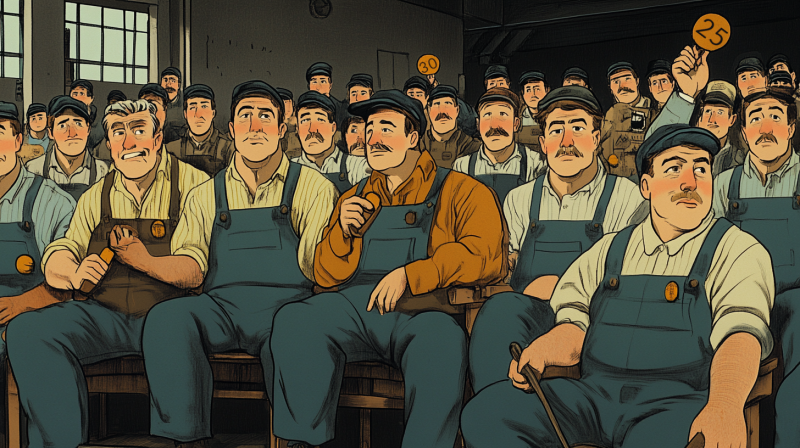
For any living community, how chores are distributed/performed is a source of friction. After many years of experimentation, we have arrived at the task auction.
Each Monday, a reverse auction for chores begins. The resident who bids the least amount of points for a chore wins the chore, and must complete it before the following Monday in order to be awarded the points.
Here is how a bidding round might go like this, with Gary as the winner:
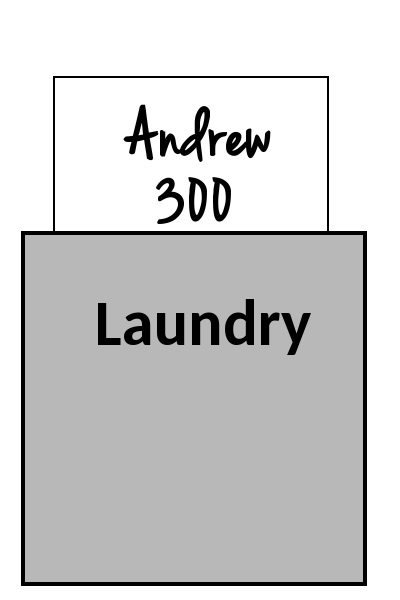
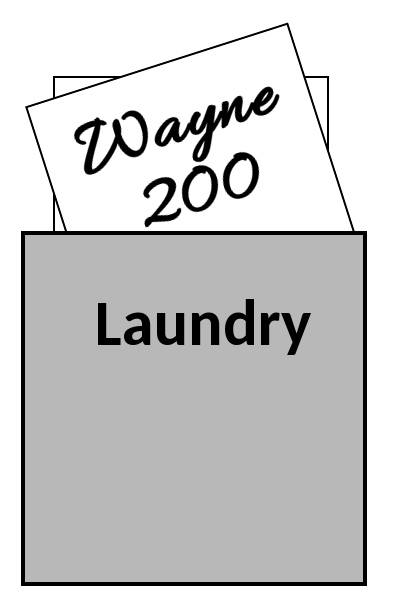
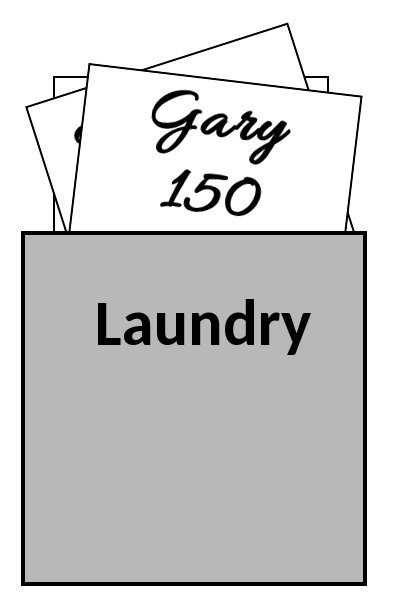
Rules
- The auction is open 24 hours.
- Unperformed tasks result in negative points being awarded to the auction winner.
- Unnecessary tasks result in 0 points being awarded to the auction winner. For example, if there was no recycling to take out, 0 points are awarded.
Practical Use
- A photograph is made when the auction closes. The results may not be thereafter altered. An auction which cannot be closed convincingly is not an auction.
- If a task has no specified deadline, the default is before the next meeting. Some tasks (like shopping) have their own deadlines, while others (like maintaining the furnaces) have no conceivable deadline.
- If someone else does the task, the auction winner still wins the points. If there is any trading of tasks, it must be done outside the auction system. See (1).
- There are no police. We just ask people to report what they did. For whatever reason, people don’t seem to lie about this. In fact, we encourage people to check off tasks as soon as they are completed in order to minimise the meeting time needed to close the task cycle.
- We have retroactively awarded points by meeting-time consensus when a task had to be performed outside the auction, for example, fixing a leak.
- We had to move dinners out of the auction. Few people were willing to risk a loss of points because of a late return to the house or because of some change of plans. The points awarded to dinners are now fixed. It is possible to sign up spontaneously. The dinners inadvertently serve as the reference task, which has an anti-inflationary effect.
- When the ratio of tasks to residents is too high, one of two things happens:
- Inflation: The value for tasks rises. This undermines the value of points earned in the past. Fortunately, it is usually possible to suspend tasks in order to get the ratio back in range. With fewer residents, things need to be cleaned less frequently, so it is usually possible to go to an alternate-week cleaning schedule for most things.
- Market break-down: people bid arbitrary points, and there is no counter-bidding because each person feels he/she already has too many tasks. Without meaningful equivalency, participation is undermined. For example, if Person A receives 250 points for shopping and Person B gets 400 for sweeping the hall, Person A is demotivated. The number of tasks must be reduced so there again is counter-bidding.
Implementations
The task auction may be conducted on a panel in a public area, using paper pockets and slips of paper. It is also possible to implement it as a website/mobile app. This version seems to be more lively.
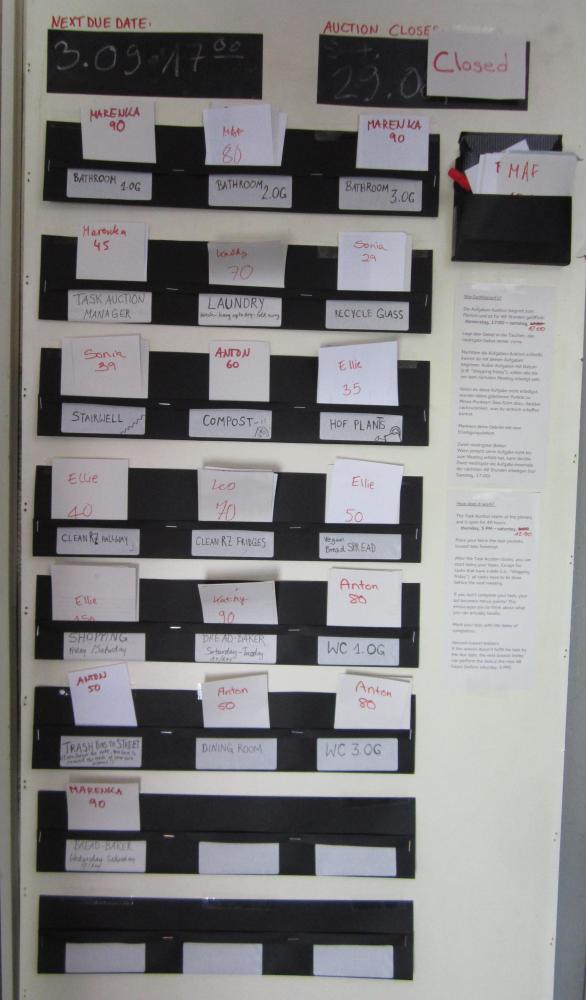
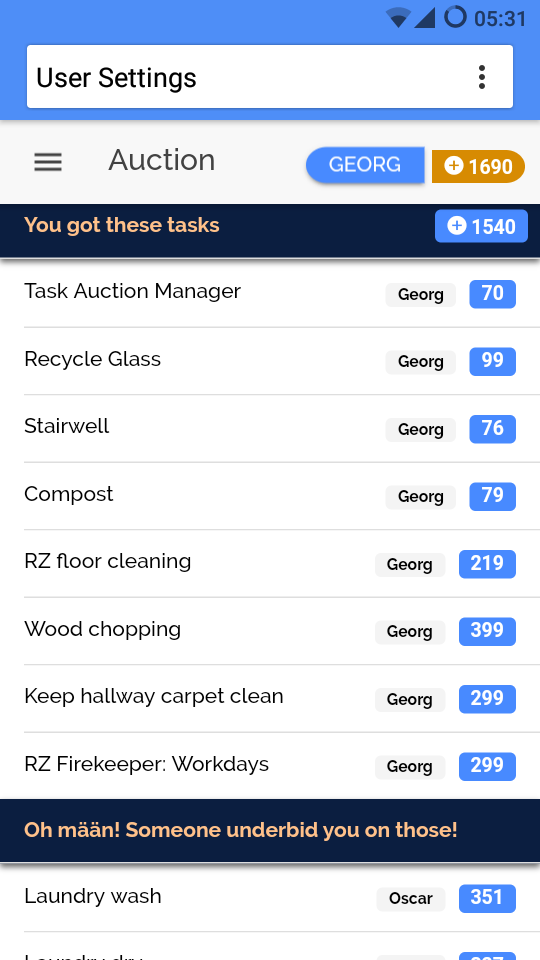
Goals
- Fairness: Somehow, we have to avoid the situation where one person changes a light bulb and claims to have done his part, while others are renovating or shopping.
- Equivalency: Some tasks take longer than others (laundry), some are more disgusting (compost), some require technical competence (repair water heater). One hard chore might be worth two easy ones, and we need a way to calculate that. Market valuation is really the only uncontroversial way of doing it.
- Democracy: A committee isn’t needed to decide which chores are worth what. Everyone is empowered to decide. Anyone who disagrees with the valuation of a task can change the value by bidding.
- Transparency: We can see who is participating in the household, and who is free-loading.
- Flexibility: If a resident is too busy one week, he/she can choose to do nothing and take on more tasks the next week. No discussion is needed; exceptions are handled naturally by the design of the system.
- Wahlbörse: The points can be used for voting.
Criticism
There is only one criticism we’ve ever heard, which is that the Task Auction is a market-based solution, and capitalists like that sort of thing. Capitalists also like refrigerators, but that’s not a reason to stop using refrigerators. The only people who have made this criticism were people who were reluctant to do chores under any system. What they wanted was opacity.
Advantages
- Few rules. Rules weigh on the users and they are often forgotten or misinterpreted.
- Sign up is fast and takes up no time during the house meeting.
- Easy Administration. The bureaucracy associated with the system is light compared to our other systems.
Transparency
In any living group, there are people who are more industrious and those who are less so. The Task Auction doesn’t change that. It only makes it transparent. The Wahlbörse changes that.
